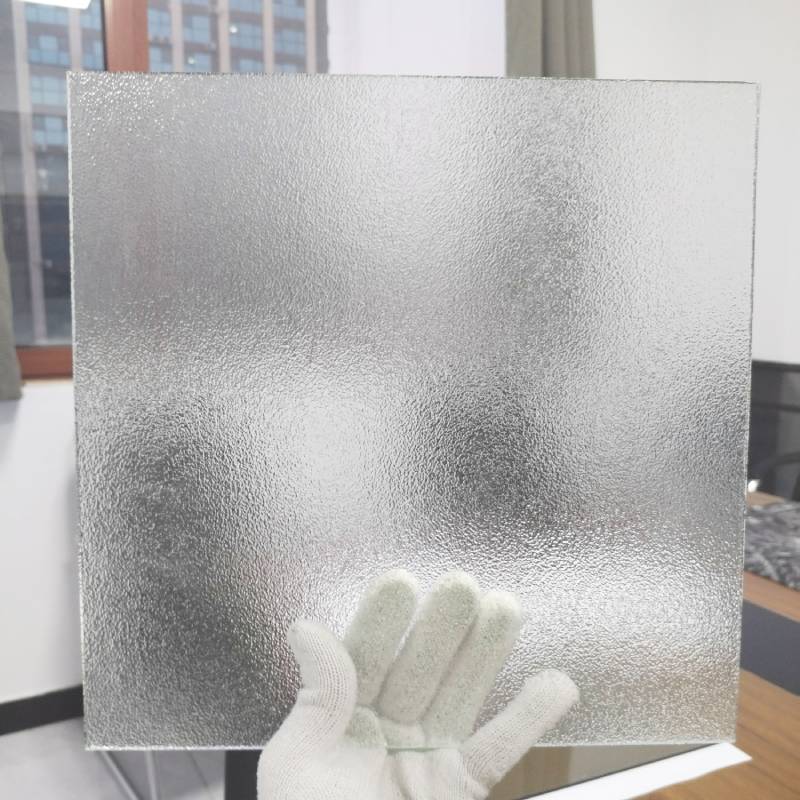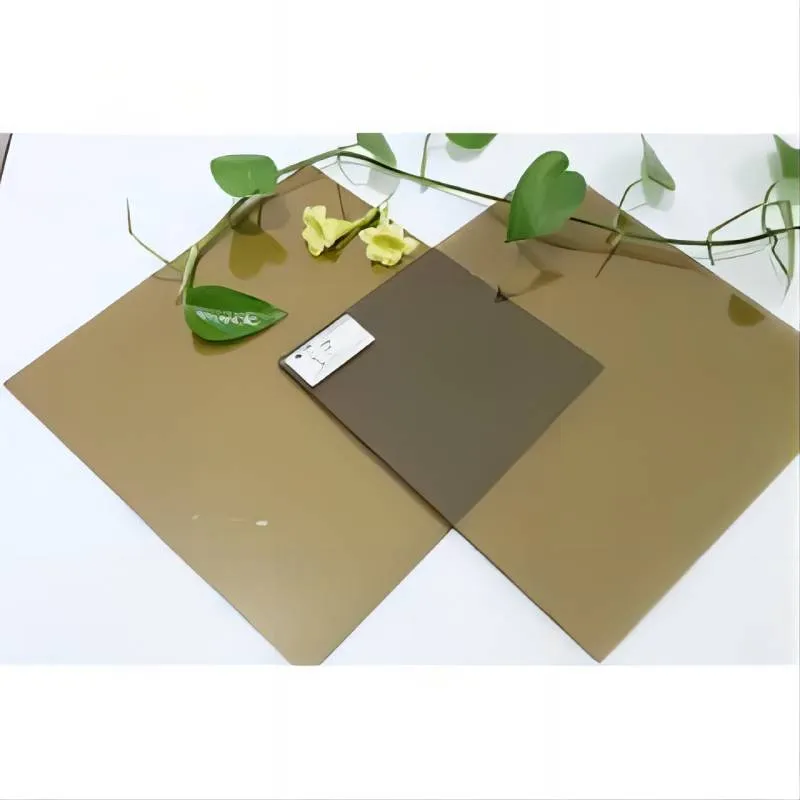Float glass manufacturing is a sophisticated process that has revolutionized the way we perceive architectural design, automotive engineering, and everyday glass products. As an industry-leading methodology, the production of float glass is a testament to human innovation in creating flat, high-quality glass panes with varied applications. This article delves into the subtleties of float glass manufacturing and underscores its significance in modern manufacturing.

In the realm of glass production, the float process stands out for its ability to produce perfectly flat and uniform glass sheets at a lower cost compared to traditional methods. Born in the mid-20th century, this technique has become the backbone of the glass industry due to its efficiency and the superior quality of the finished product.
The experience of manufacturing float glass begins with a careful selection of raw materials. Silica sand, soda ash, and limestone are the primary components. These raw materials are meticulously blended with precise quantities under strict quality control, ensuring there are no impurities that could affect the clarity and strength of the final product. The mixture is then melted in a furnace at temperatures exceeding 1,500 degrees Celsius. Such rigorous conditions require expertise and a deep understanding of material sciences to adjudicate the equilibrium between the temperature and the melting time, ensuring optimal consistency and purity.

Once the raw amalgam reaches a molten state, it is carefully fed onto a bath of molten tin. This part of the process highlights the innovation embedded in float glass manufacturing. The glass literally floats on the surface of the tin, thanks to its lower density, and as it spreads out, it forms a perfectly flat surface. Expertise in controlling the temperature of both glass and tin baths is crucial since the temperature gradients affect the thickness and consistency of the glass sheet.
float glass manufacturing
The expertise of a float glass manufacturer is also emphasized in the annealing phase. As the glass cools on the tin bath, it passes into a controlled cooling tunnel called a lehr. Temperature control within the lehr is critical; improper cooling can lead to stress within the glass, potentially resulting in cracks or warping. Here, professionals ensure the glass sheet gradually cools down, relieving the internal stresses and cementing its flatness and durability.
A mark of authoritativeness in float glass manufacturing arises from the ability to produce glass with custom properties. By adjusting the raw material composition or adding specific metal oxides, manufacturers can produce glass with various tints, UV filtering capabilities, or increased thermal insulation – attributes highly sought after in automotive and architectural applications. Moreover, excellence in float glass production also involves continuous innovation and adoption of cutting-edge technologies, such as smart glass, which regulates light transmission and offers energy efficiency in buildings.
The trustworthiness of a float glass manufacturing process is validated through rigorous testing and certification. High-quality float glass must comply with international standards such as ASTM and EN to ensure its mechanical strength, optical clarity, and thermal stability. Leading manufacturers often adhere to stringent quality assurance protocols, verified through regular audits and stringent testing, further cementing their position as reliable suppliers in the global market.
The essence of float glass manufacturing lies in its seamless integration of advanced material science, precise engineering, and continuous innovation. By leveraging decades of experience and a commitment to quality, manufacturers have transformed this process into a reliable method for producing glass that meets the demands of modern life, fostering an environment of trust and dependability. Whether for building skyscrapers, crafting sleek automobiles, or creating energy-efficient homes, float glass remains indispensable in shaping the future of materials and design.
 Afrikaans
Afrikaans  Albanian
Albanian  Amharic
Amharic  Arabic
Arabic  Armenian
Armenian  Azerbaijani
Azerbaijani  Basque
Basque  Belarusian
Belarusian  Bengali
Bengali  Bosnian
Bosnian  Bulgarian
Bulgarian  Catalan
Catalan  Cebuano
Cebuano  Corsican
Corsican  Croatian
Croatian  Czech
Czech  Danish
Danish  Dutch
Dutch  English
English  Esperanto
Esperanto  Estonian
Estonian  Finnish
Finnish  French
French  Frisian
Frisian  Galician
Galician  Georgian
Georgian  German
German  Greek
Greek  Gujarati
Gujarati  Haitian Creole
Haitian Creole  hausa
hausa  hawaiian
hawaiian  Hebrew
Hebrew  Hindi
Hindi  Miao
Miao  Hungarian
Hungarian  Icelandic
Icelandic  igbo
igbo  Indonesian
Indonesian  irish
irish  Italian
Italian  Japanese
Japanese  Javanese
Javanese  Kannada
Kannada  kazakh
kazakh  Khmer
Khmer  Rwandese
Rwandese  Korean
Korean  Kurdish
Kurdish  Kyrgyz
Kyrgyz  Lao
Lao  Latin
Latin  Latvian
Latvian  Lithuanian
Lithuanian  Luxembourgish
Luxembourgish  Macedonian
Macedonian  Malgashi
Malgashi  Malay
Malay  Malayalam
Malayalam  Maltese
Maltese  Maori
Maori  Marathi
Marathi  Mongolian
Mongolian  Myanmar
Myanmar  Nepali
Nepali  Norwegian
Norwegian  Norwegian
Norwegian  Occitan
Occitan  Pashto
Pashto  Persian
Persian  Polish
Polish  Portuguese
Portuguese  Punjabi
Punjabi  Romanian
Romanian  Russian
Russian  Samoan
Samoan  Scottish Gaelic
Scottish Gaelic  Serbian
Serbian  Sesotho
Sesotho  Shona
Shona  Sindhi
Sindhi  Sinhala
Sinhala  Slovak
Slovak  Slovenian
Slovenian  Somali
Somali  Spanish
Spanish  Sundanese
Sundanese  Swahili
Swahili  Swedish
Swedish  Tagalog
Tagalog  Tajik
Tajik  Tamil
Tamil  Tatar
Tatar  Telugu
Telugu  Thai
Thai  Turkish
Turkish  Turkmen
Turkmen  Ukrainian
Ukrainian  Urdu
Urdu  Uighur
Uighur  Uzbek
Uzbek  Vietnamese
Vietnamese  Welsh
Welsh  Bantu
Bantu  Yiddish
Yiddish  Yoruba
Yoruba  Zulu
Zulu 


